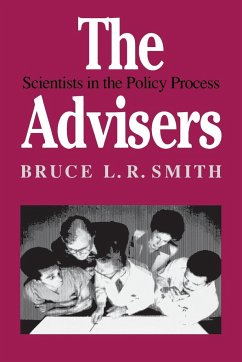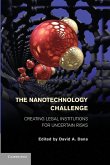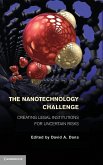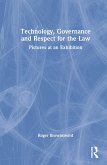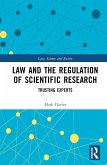" America's governing system is unique in the extent to which scientists and other outside experts participate in the policy process. This wide-ranging study traces the rise of scientists in the policy process and shows how outside experts interrelate with politicians and administrators to produce a unique and dynamic policy process. It also shows how the very openness of American government creates the potential for unusual conflicts of interest. Bruce L. R. Smith focuses on the experiences of agency and presidential-level advisory systems over the past several decades. He chronicles the special complexities and challenges resulting from the Federal Advisory Committee Act-the ""open meeting"" law-to provide a better understanding of the role of advisory committees and offers valuable lessons to guide their future use. He looks at science advice in the Departments of Defense, State, and Energy; the National Aeronautics and Space Administration; the Environmental Protection Agency; and then examines how science advisory mechanisms have worked at the White House. Rather than simply providing a description of structures and institutions, Smith shows the advisory systems in action-how advisory systems work or fail to work in practice. He analyzes how the advisers influence the policymaking process and affect the life of the agencies they serve. Smith concludes with an assessment of the relationship between science advice and American democracy. He explains that the widespread use of outside advisers clearly reflects America's preference for pluralism. By scrutinizing agency plans, goals, and operations, advisers and advisory committees serve a variety of functions and attempt to strike a balance between openness and citizen access to government and the need for discipline and sophisticated expertise in policymaking. At the root of the advisory process is a paradox: scientists are called on because of their special expertise, but they are useful onl"
Hinweis: Dieser Artikel kann nur an eine deutsche Lieferadresse ausgeliefert werden.
Hinweis: Dieser Artikel kann nur an eine deutsche Lieferadresse ausgeliefert werden.

